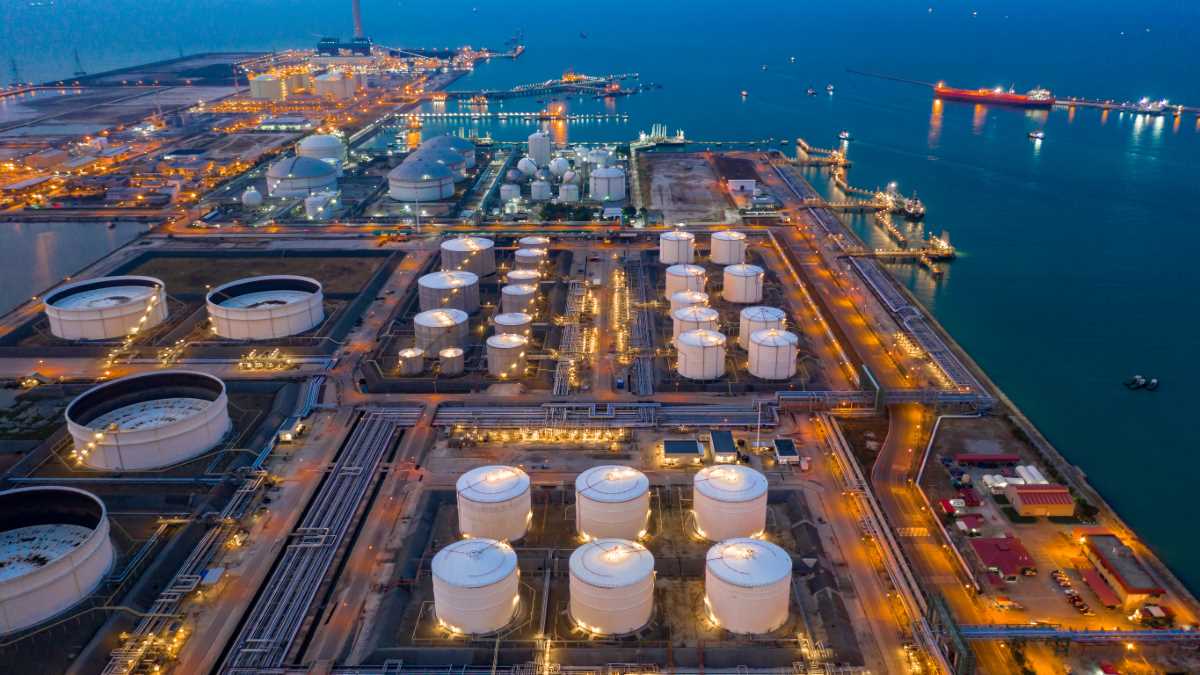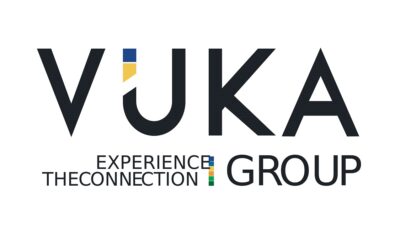The deal calls for Kosmos to provide 2.45 million tonnes per annum (mtpa) of LNG for an initial term of up to 20 years
JOHANNESBURG, South Africa, July 25, 2022/APO Group/ —
By NJ Ayuk, Executive Chairman, African Energy Chamber (www.EnergyChamber.org)
In 2020, rich natural gas resources offshore Mauritania and Senegal were the subject of the biggest long-term liquefied natural gas (LNG) contract signed that year.
The agreement between American oil firm Kosmos Energy, its partners, and BP Gas Marketing Limited, was for LNG from Phase 1 of the Greater Tortue Ahmeyim project, offshore Mauritania and Senegal. The deal calls for Kosmos to provide 2.45 million tonnes per annum (mtpa) of LNG for an initial term of up to 20 years.
The deal was a milestone for the companies and for Senegal and Mauritania.
But frankly, with so many natural gas projects starting up in the two countries, we should be hearing about even more long-term gas sales contracts.
Currently, Kosmos Energy and its partners (BP, Senegal’s state-owned oil company, Petrosen; and Mauritania’s Societe Mauritanienne des Hydrocarbures) have only succeeded in securing sales contracts for Phase 1 volumes of the Greater Tortue Ahmeyim Project. This is despite the fact the project is estimated to have 15 trillion cubic feet of gas production potential, enough for 30 years of production or more.
In another promising BP and Kosmos Energy partnership, the ultra-deepwater Yakaar-Teranga gas field offshore Senegal — holding an estimated 2,739 billion cubic feet of natural gas reserves — only a fraction of Phase 1 volumes have been contracted.
And that’s more than we can say for BP’s BirAllah project in Mauritania, projected to generate 1,642 barrels per day of crude oil and condensate, 277 million cubic feet (Mccfd) per day of natural gas, and 1,304 Mmcfd of liquid natural gas by 2030. As of yet, production from BirAllah remains uncontracted.
I can’t understate the importance of pursuing long-term sales contracts to help set the stage for gas project success. When companies secure decades of LNG purchases, for example, they’re much more likely to line up the investor support they’ll need to produce the natural gas that they’ll eventually be liquifying. Why? Long-term contracts minimize investors’ risks; they know that the revenue that comes in from LNG sales will help cover their investment costs.
Long-term contracts minimize investors’ risks; they know that the revenue that comes in from LNG sales will help cover their investment costs
Natural gas project start-ups are likely to send production levels in Senegal and Mauritania soaring, from practically nothing to 265,000 barrels of oil equivalent per day (boepd) by the end of the 2020s. That momentum is likely to build with production nearly doubling to more than 500,000 boepd by 2035, tripling to 750,000 boepd by 2040, and continuing to rise well into the 2040s.
This represents great promise, both for the oil and gas companies in the region and also for the people of Senegal and Mauritania. The gas these projects generate can create tremendous job and entrepreneurial opportunities. It can meet domestic needs for gas-to-power programs designed to address energy poverty. It can be monetized, and in turn, help fund much-needed infrastructure, from pipelines to ports, with the potential to foster economic growth and diversification. And, it can serve as feedstock for petrochemical and fertilizer plants, which will contribute to industrialization and even more economic growth.
These are all reasons why the African Energy Chamber, in our forthcoming Petroleum Laws – Benchmarking Report for Senegal and Mauritania, urges companies in the region to make securing long-term gas sales contracts a priority. By fostering stable gas project revenues and investor security, long-term agreements will help Senegal and Mauritania fully capitalize on their natural gas resources.
The Time is Right
While Kosmos Energy’s long-term sales agreement with BP Gas Marketing Limited could be called a rarity in 2020 when COVID-19 practically killed demand for oil and gas and forced companies around the globe to put projects on hold, there’s every reason to be optimistic about securing long-term gas sales contracts in 2022. This is particularly true in European markets, which recently made a dramatic shift away from spot transactions (immediate or near-term sales with no guarantee of additional transactions going forward) for LNG.
That transition began within the last year, when Europeans began feeling the impacts of diminishing natural gas supplies, Irina Slav wrote for Oilprice.com.
“A decline in investments in new gas production, long lead times on liquefaction facilities, and growing pressure on emission reduction collided to result in tight gas supply as demand continued to grow globally,” Slav explained. “Europe, the poster child of the energy transition, was horrified to learn it did not have enough wind and solar generation capacity to replace gas consumption — especially amid low wind speeds and during the less sunny seasons.”
Those circumstances sent demand for long-term gas supplies soaring. And then Russia invaded Ukraine.
“The Russian invasion of Ukraine has had a dramatic impact on long-term LNG contracts,” Wood Mackenzie principal analyst Daniel Toleman said in June. “Many traditional LNG buyers will neither procure spot gas or LNG nor renew or sign additional LNG contracts with Russian sellers. Spot prices have also been high and volatile, pushing many buyers towards long-term contracts. Additionally, some buyers are returning to long-term contracting on behalf of governments to protect national energy security.”
All of these factors are converging to create a window of opportunity for securing long-term gas and LNG contracts, and companies in Senegal and Mauritania should be capitalizing upon it.
Government leaders there are doing their part to help: Both Senegal and Mauritania have worked to offer international oil and gas companies favorable economic terms to operate within their borders, meaning companies can pursue projects with lower capital expenditures.
So, my message to oil and gas companies operating in Senegal and Mauritania is, act now to lock in long-term sales agreements for gas and LNG. Europeans could back their words by signing long-term agreements. Our industry need to act now to put ourselves in the optimum position for attracting investments. Do what it takes to achieve a win-win that could be beneficial for you while setting the stage for local communities, businesses, and individuals to realize a more prosperous future.
Distributed by APO Group on behalf of African Energy Chamber.


 Energy5 days ago
Energy5 days ago
 Business4 days ago
Business4 days ago
 Business3 days ago
Business3 days ago
 Business5 days ago
Business5 days ago
 Events3 days ago
Events3 days ago
 Business4 days ago
Business4 days ago
 Business4 days ago
Business4 days ago
 Energy3 days ago
Energy3 days ago











